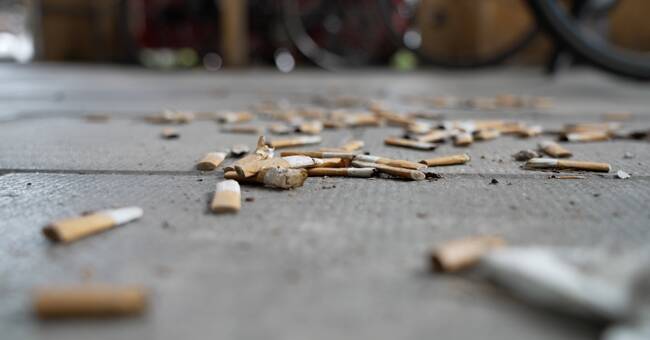Since 2011, you can get a fine of SEK 800 for so-called littering offense, for example if you litter through small amounts of glass bottles or food packaging.
On the other hand, minor littering offenses - such as fimpar, chewing gum or snus - are not punishable and do not lead to a fine.
But now it seems to be changing.
On Wednesday, the Riksdag will decide to remove that exemption, and according to the Environment and Agriculture Committee's proposal to the Riksdag, the amendment seems to be going through.
SVT asked some people in town about what they think is leaning towards fines for this type of littering.
- I think it's awful that people can just let things go around them without caring.
And I think fimpar is disgusting, so happy - it sounds wonderful, says Ulrika Falk.
She is supported by Lale Caly.
- I do not think it's that crazy.
You have to stand up for what you have done.
Consequences of EU directives
The change in the law is a consequence of an EU directive to reduce the littering of disposable plastic articles.
According to Keep Sweden Clean, around 1 billion fumbles are thrown on the ground every year, which amounts to a total of 108 tonnes of plastic.
The Government writes in its bill that the littering of smaller objects gives rise to major effects on the environment.
However, only 87 fines were issued for littering last year according to the Police Authority, so the question is how effective the law change will be and how many will be prosecuted for the offense - a point of view that the Law Council put forward in its opinion.
Ulrika Falk also sees a risk that it will be something of a blow in the air.
- The problem may be that it is not possible to keep up, that it becomes a bit toothless because there are no resources.
If the change in the law is voted through, it will enter into force on 1 January 2022.

